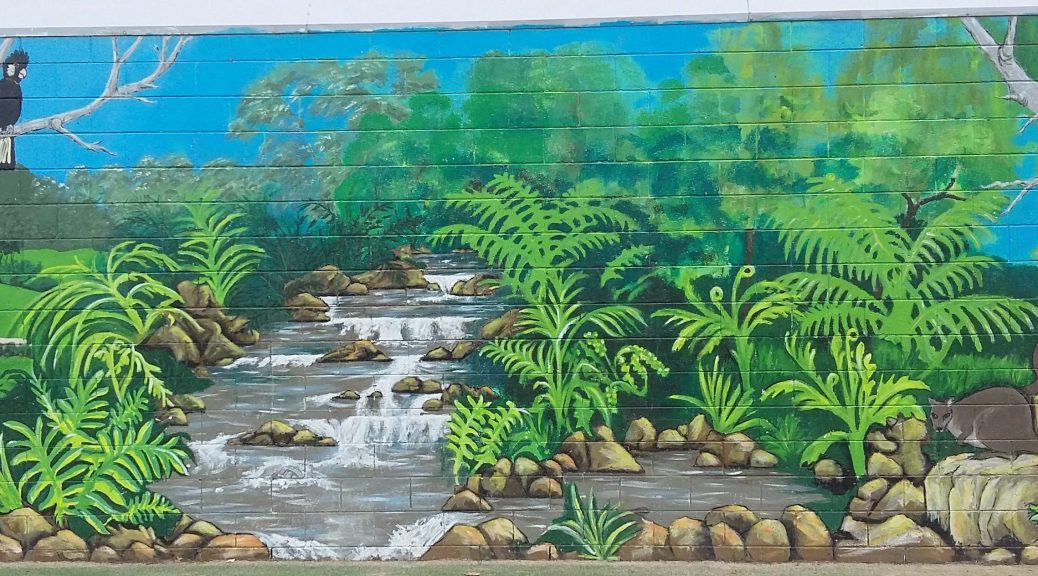
The forgotten secret to being a writer
I have a confession to make. For the last year I have been suffering from imposter syndrome. Although I have a published book, it’s felt like I was coasting on writing I had done years ago. I finished Harlequin’s Riddle when my son was small. He’s starting uni next year. Columbine’s Tale was finished when my daughter was small. She’s nearly in year ten. With all the responsibilities of life and work I’ve had little time to write for a long time. To be honest, I was really starting to wonder if I could even call myself a writer. How could I be a writer if I wasn’t writing? Turns out I had forgotten something important. Something I knew far better as a child than I do now.
Typical advice for writers
One of the things you’re told often if you are an aspiring writer is to write. Write a lot. I’ve even told emerging writers that myself. It’s good advice. The more you write, the better you get with words. You learn how to say what you want to say concisely. You discover which words you personally overuse. Your vocabulary expands. When you give yourself challenges, you develop your ability to write emotions or fight scenes or whatever it is you need.
The other important piece of advice that’s given often is to learn to edit and to accept editing. This is also important. A first draft is always going to need work. So’s a third or fifth draft. You need to be willing to keep working at your writing until it sings. And nobody can see all the flaws in their own work – when you’ve read it often you become blind to certain problems or repetitions. I think once a writer is able to accept feedback from others and work out what is valuable and what isn’t, they’re well on their way to becoming professional.
What I have and haven’t been doing
I’ve worked as a professional editor for about eight years now, and that has definitely allowed me to develop my writing abilities. My instincts have vastly improved for understanding what the issues are in a piece of writing. The more you analyse and problem solve, the more you can pinpoint what is going wrong and how to improve it. I can absolutely say that being an editor has made me a better writer. And I did do intensive editing of Harlequin’s Riddle and Columbine’s Tale before they were published.
But I still haven’t done much of my own writing. And it hasn’t just been the last year – it’s been about four years. Probably since I finished my PhD. I’ve written previously about doing a creative PhD (here’s the link). While I wrote a novel during my candidacy, I struggled with switching between a creative and academic mindset. And once the PhD was over I didn’t feel like a writer any more. I was burned out, heartsick, doubting my abilities. In the next few years we relocated to a new city, moved house twice, had issues with our kids’ school.
I’d forgotten how to be a writer.
A journey to the past
This week a magical confluence of events occurred. I made an unexpected trip to Tasmania at the same time that I was reading Terry Brooks’ (Shannara) book on writing, Sometimes the magic works. I was born and grew up in Hobart but I hadn’t been back in a while. Life moves on, and sometimes you only remember things when you return to the setting where they happened. As we were sorting out what we needed to sort out, we were driving around familiar streets, past familiar landmarks. And I began to see shadows of what I had forgotten.
Terry Brooks has a chapter on the importance of daydreaming for writers. I was reading that around the same time I was revisiting the places I spent so much time in. And I could see the imaginary places that rested alongside them. As I drove past the walk home, along a long road, a forest sprang up. Years ago I had walked that imaginary forest, dressed in a velvet dress and cloak, no longer a school girl but a gypsy. When we stopped to walk through the local park, I saw the castle that had once been there, with its many rooms and fantastic feasts. Driving past our old home, I remembered Helen, my invisible friend who lived under our house.
The forgotten secret
The thing is, Terry Brooks is right. Daydreaming is where it begins. It’s where stories take root and begin to grow. When you daydream, you teach your imagination muscles how to stretch. You begin the slow, sometimes painful but ultimately exhilarating process of growing wings. I spent an awful lot of time daydreaming as a kid. My imagination was well developed from an early age. And imagination is the crucial, forgotten ingredient to being a writer – especially a fantasy writer.
Remembering this, I was able to realise that even in the years when I wasn’t writing, my imagination remained my constant companion. I still wondered, and was curious, and conjured possibilities. I may not have been writing on the page, but I was always, always writing in my head. The stories never left me.
I don’t feel like an imposter any more. The physical act of writing is only part of the process. Whatever else I am doing, my imagination, given life and strength when I was a child, remains active, conjuring stories and characters and settings. As long as I have that, even when I can’t put pen to page, I am a writer.